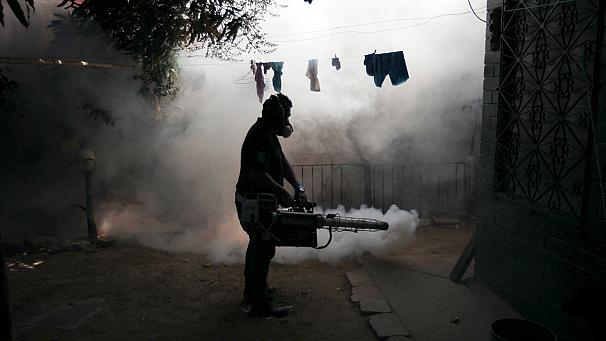-
Tips for becoming a good boxer - November 6, 2020
-
7 expert tips for making your hens night a memorable one - November 6, 2020
-
5 reasons to host your Christmas party on a cruise boat - November 6, 2020
-
What to do when you’re charged with a crime - November 6, 2020
-
Should you get one or multiple dogs? Here’s all you need to know - November 3, 2020
-
A Guide: How to Build Your Very Own Magic Mirror - February 14, 2019
-
Our Top Inspirational Baseball Stars - November 24, 2018
-
Five Tech Tools That Will Help You Turn Your Blog into a Business - November 24, 2018
-
How to Indulge on Vacation without Expanding Your Waist - November 9, 2018
-
5 Strategies for Businesses to Appeal to Today’s Increasingly Mobile-Crazed Customers - November 9, 2018
US Adds More Countries to Zika Travel Alert
A total of 22 destinations, most in Latin America and the Caribbean, where there have been outbreaks of the Zika virus are part of a CDC travel alert. Zika outbreaks have also been reported in Ecuador, El Salvador, Guatemala, Haiti, Honduras, Mexico, Panama, Paraguay, Puerto Rico, Suriname and Venezuela, among other countries.
Advertisement
The Center for Disease Control and Prevention said the virus is believed to be linked to microcephaly, a birth defect that alters the brain development of unborn babies.
Since October, the number of babies born with suspected microcephaly – or abnormally small heads – in Brazil reached about 3,900, up from 150 in 2014.
Travelers to unsafe areas are urged to prevent mosquito bites by using mosquito repellant and covering exposed skin. Symptoms, if present, include mild fever, rash (mostly maculo-papular), headaches, arthralgia, myalgia, asthenia, and non-purulent conjunctivitis, occurring about two to seven days after the mosquito vector bite. When a mosquito bites a person who is already infected with Zika, it will also contract the virus.
NY authorities warned anyone contemplating travel to warmer regions to take care.
The Salvadorean government decided to make the announcement because 5,397 cases of the Zika virus had been detected in El Salvador in 2015 and the first few days of this year.
Women in El Salvador should wait until 2018 before getting pregnant, the deputy health minister Eduardo Espinoza said, while Jamaica has asked women to avoid pregnancy for 6 to 12 months.
Dr Hilary Kirkbride, travel and migrant health expert at PHE, said: “The symptoms of Zika are similar to other mosquito-borne infections such as dengue, chikungunya and malaria so laboratory testing is essential for the correct diagnosis”.
“The Zika virus has been spreading rapidly over the past several months, most prominently in Brazil”, Gawker reported.
The CDC said a newborn in Hawaii was found to have brain damage linked to Zika.
The World Health Organization (WHO) this week noted a surge in cases of microcephaly in Brazil, the country most affected by the current epidemic.
On Friday, Brazilian researchers writing in the CDC’s Morbidity and Mortality Weekly Report provided some details on 35 infants with microcephaly born to women who lived or travelled to areas where the virus circulates. Before a year ago there were about 160 cases of microcephaly in Brazil on average.
Advertisement
What’s the best way to avoid catching Zika virus?





























